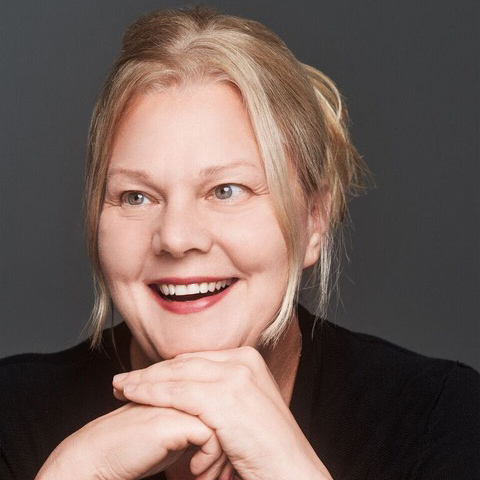Film Career Finder
Start Here:
Producer (Film)
Career Overview
A Producer is the person who heads up or assists with the production of a film, TV show, or other types of entertainment. Depending on the nature of the position, a Producer may develop scripts, find financing, hire the crew, or be involved with all of these aspects of content creation.
Alternate Titles
Movie Producer, Film Producer
Avg. Salary
$750,000 per film (for a studio-backed production)1
Salary Range
$250K-$10M (for studio-backed productions)1

How To Become a Producer (Film)
- Career Description
- Salary
- Career Outlook
- Career Path
- Experience & Skills
- Education & Training
- Additional Resources
- Sources
- References
Career Description
The title of Producer stems from the function they serve: to propel the production of a film, TV show, or other form of content. On a simple one or two-day shoot, there may be a single Producer. In many cases, though, multiple Producers are part of a production, each with a specific responsibility towards making the project happen.
A Producer can be self-employed or work as part of a production company or studio, but in either scenario, they are integral to the success of taking a project from script to screen. Generally the first to board a production and last to leave it, it’s a Producer’s job to oversee a film, TV show, commercial, web series, or other type of entertainment all the way from conception to distribution.
As mentioned, productions generally have more than one Producer. Because the scope of a project is often too large for a single person to handle all aspects of production, which includes script development, hiring cast and crew, and raising funds, multiple Producers are necessary during the life of a project.
Paula Wagner, the woman behind films such as Jack Reacher and Mission: Impossible III, provides a concise and accurate overview of what it means to be a Film Producer.
Producers find content ideas, hire Screenwriters or TV Writers as needed, help develop scripts, and provide feedback during the writing process. They also pitch projects to financial backers to obtain funding. Once a Producer has found financing for a project, they’ll start looking for a Director and other essential crew, as well as weigh in on casting decisions.
A Producer also manages a project’s budget and oversees all business decisions. They ensure that the project is delivered to its backers on time and within budget.
Once principal photography is completed, the Producer can also weigh in on all aspects of post-production, including editing and scoring. If a Producer has been involved from the inception of a production and secured funding for it, they get final say.
When a film or TV show is ready for release, the Producer will make decisions on distribution and marketing so that it reaches the correct audience and hopefully becomes a financial and critical success.
A Producer may spend years bringing a single project to life, which typically translates to them having multiple projects in various stages of development, production, and post-production at any given time. As such, it’s important for a Producer to be both flexible and resilient about projects they care about.
To learn more about building a career as a Producer, we talked to:
Salary
A general estimate of what a Producer could make on a studio-backed film may fall in the ballpark of around $750,000 including backend points. The wider salary range for studio Producers generally runs from $250,000 for first-time Producers all the way to $10,000,000, which was Jason Blum’s first-dollar backend on Get Out.
Curious about the kind of salary you can expect as a Film Producer? This video breaks down how individuals in this role earn a living.
A Producer’s salary can vary widely based on how far they are in their career and the success of their previous and ongoing projects. In addition to their upfront salary, a Producer will generally get backend points that can become highly lucrative should the film be a hit.
Like many other creative professionals who work in entertainment, it can – and often does – take years before a Producer can earn a sustainable living solely through their projects. Given the ebb and flow of the industry, a Producer’s annual earnings can also fluctuate from year to year.
Hey, what do you think about trying our new Film Career HelperFilm Career Helper really quick? It’s totally free and could help get your career moving fast! Give it a try. It’s totally free and you have nothing to lose.
Career Outlook
Given the continual growth of content platforms, there are ample work opportunities for aspiring Producers.
Traditional mediums such as feature film, network television, and commercials have and will continue to need Producers to helm and assist in the production process. With the explosion of cable, streaming, and other online outlets over the last several years, even more options exist now for those looking to become a Producer.
What are the responsibilities of a Film Producer? How exactly do they make a movie? Watch this video to find out.
However, while an aspiring Producer can choose from any number of entertainment and marketing mediums, it’s important to keep in mind that much of the time and energy that a Producer puts into a given project may initially be a labor of love.
Unless a Producer is working as part of a studio or production company, the hours spent developing and even producing a project may go unpaid until that project is bought, making the outlook for an aspiring Producer both bright and one that may entail considerable effort before financial success is found.
Career Path
As with many other specialties in the entertainment industry, there is no single career path to becoming a Producer.
For some individuals, that path may begin with college. Prior to starting their professional careers, many Producers pursue the study of film, which can help in instructing them about the many aspects of development, production, and post-production with which they must be familiar to competently oversee during the course of a project.
Should an aspiring Producer want to be strictly involved with the financial aspects of filmmaking, pursuing a degree in business can also be a steppingstone to a future career.
That being said, formal studies aren’t necessarily required to become a successful Producer. Much of what a Producer does can be learned on the job. For this reason, many Producers may immediately pursue a professional career without a degree.
Should the project be small, such as a short film, they may be able to helm it even without any prior experience. However, learning on the job typically translates to starting on projects as a Production Assistant or other type of lower-level position, especially if starting out in feature film or television.
This video provides a quick overview of the steps to take to begin on the path to becoming a Film Producer.
With experience gained, a Producer may then earn the title of an Associate Producer, which generally means that they have a more contained set of responsibilities for a given project. Should they be primarily interested in the budgeting of a project, they may pivot into a Line Producer role. If primarily interested in the story aspect of a project, they may become a Creative Producer. As you may have already realized, the term Producer is wide-ranging and can apply to any number of jobs required in the making of a film or other type of content.
Many Producers gravitate towards a particular part of development, production, or post-production and prefer to produce for that specific part of the filmmaking process.
But as they acquire more experience and projects under their belt, a Producer can potentially take on more responsibilities and even start creating their own opportunities via sourcing content ideas and helming projects from start to finish.
While a person on this career path might be an independent Producer for the entirety of it, they may also get hired by a production company or studio along the way or alternate between being an independent Producer and a hired Producer over the course of their career.
Experience & Skills
While some skillsets may vary for a Producer should they focus on a particular part of the filmmaking or content creation process, others can be incredibly helpful regardless of their area of expertise or specialty.
For one, a Producer must understand how to manage – manage schedules, funds, personnel, and even their own time and energy. Especially when a Producer is helming a project and seeing it through from development to distribution, they must become an expert at having many proverbial balls in the air.
Two, a Producer must understand the fundamentals of filmmaking and content creation. While they aren’t necessarily expected to be experts in directing, cinematography, editing, or the other specialties necessary for making a film, they do need to know enough to communicate effectively with the professionals who are experts in their respective fields.
Film Producer Christina Sibul describes her on-set experience.
Given that a Producer is the person who generally has the final say in who is hired for a project, knowing what is needed to execute those jobs effectively is key to the success of that specific project and the Producer’s career at large.
Three, a Producer must excel at networking and creating connections within the entertainment industry. Whether a Producer is exploring content ideas, pitching those ideas to a production company or studio, or trying to convince potential financiers to invest in a project, they can only be successful in their efforts by making the connections that will help them achieve their goals.
Much of filmmaking – or TV making, web series making, etc. – is a numbers game, so an aspiring Producer cannot expect the first person they reach out or pitch to will be the person collaborating with them on a project. It takes a lot of reaching out, rejections, and reaching out again before a project is made. That means having ample connections in the industry.
Education & Training
As mentioned, a Producer may begin their career by pursuing a college degree in film, business, or another type of study that can directly benefit their professional pursuits.
College can also provide opportunities for emerging Producers to gain experience through student films or other similar projects, as well as offer a space for connections and professional relationships to be made.
If an aspiring Producer chooses not to pursue college, they must get their education on the job.
If you’re a novice Film Producer who’s looking to make their first feature film, this video offers tips on how to do it smartly and successfully.
That means seeking out opportunities to be part of films, TV shows, web series, or other types of productions. These opportunities might be in the form of internships, Production Assistant positions, or other entry-level roles where it is understood that they are learning while working.
Several organizations offer programs to help aspiring Producers gain the expertise needed for a successful career. The Producers Guild of America has PGA Create, an immersive lab for Creative Producers from underrepresented communities. The Sundance Institute also provides a Producers Program for emerging Independent Producers.
Resources such as filmmaking-centric websites and filmmaking channels on YouTube can offer aspiring Producers free instruction and information as they pursue their careers.
Additional Resources
There are many different online and professional resources to check out as a Producer, including the Producers Guild. Rippberger says, “Sundance has great resources, both at the festival and online. They also have various programs that support the filmmaking community.
Some other good companies are Impact Partners, Cinema of Change, and Winston Baker. It’s also good to check out non-profit programs such as Film Independent and the Independent Filmmaker’s Project.”
Each of these organizations and companies not only has resources for supporting emerging filmmakers but can also be a place to network. Most of their programs happen year-round so it’s good to check back often to see what new initiatives are announced.
It can also be worthwhile for a Producer to watch Netflix and Amazon and go to the movies regularly. If they know what kind of content is being released in the world, then they’ll have a better idea of the quality and type of material that’s out there when they’re putting a project together.
Consuming media is a good networking idea because the Producer may end up meeting the people that created that work or talking to fans of it. Much of producing is merging oneself into the film world.
Sources

Lynn Hendee
Lynn Hendee has a Masters in Fine Arts from the University of Southern California’s Peter Stark Motion Picture Producing Program, and she was an adjunct Professor of Filmic Writing at USC for ten years. She worked with legendary Producer Bob Chartoff for many years as Head of Production. She is a member of the Producers Guild of America and founding Co-Chair of the PGA’s Women’s Impact Network (WIN). She is also an alumni of the 2017 Sundance Institute/Women in Film Intensive Workshop.
She recently produced The Glorias, a feature film based on the book by Gloria Steinem, My Life on the Road, directed by Julie Taymor and starring Julianne Moore, Alicia Vikander, Bette Midler, Janelle Monae, Lorraine Toussaint, and Timothy Hutton. The Glorias had its World Premiere at the 2020 Sundance Film Festival.
Lynn also produced Julie Taymor’s film version of A Midsummer Night’s Dream, as well as her film The Tempest, starring Helen Mirren, Felicity Jones, Russell Brand, Ben Whishaw, David Strathairn, Alfred Molina, Chris Cooper, Alan Cumming, Tom Conti and Djimon Hounsou. The Tempest was honored as the closing night film of the 2010 Venice Film Festival, the Centerpiece selection for the 2010 New York Film Festival, and was featured at the Chicago International Film Festival, Hawaii International Film Festival, Mill Valley Film Festival, and the 2011 Moscow International Film Festival.
Lynn also produced the Lionsgate release of Ender’s Game alongside Bob Orci, Alex Kurtzman and Gigi Pritzker. Ender’s Game was directed by Gavin Hood and starred Harrison Ford, Viola Davis, Asa Butterfield, Ben Kingsley, Abigail Breslin, and Hailee Steinfeld.
Ms Hendee’s film In My Country, starring Juliette Binoche and Samuel L. Jackson, was awarded the Diamond Cinema for Peace Award at the Berlin Film Festival, as well as the Common Ground Award for Film in honor of its depiction of the Truth and Reconciliation Commission of South Africa. Upon viewing the film, Nelson Mandela thanked the filmmakers for their “gift to the South African people.”
She is currently in development at HBO on The Silent Spring of Rachel Carson, about the pioneering environmentalist and author; The Day They Stole the Mona Lisa, based on the true story of the 1911 theft of the most famous painting in the world from the Louvre Museum; Jack London’s Wolf House, about the complicated relationship between Jack London and his co-adventurer wife, Charmian; and a cable series entitled Hackabout, based on the book Fanny: Being the True History of the Adventures of Fanny Hackabout-Jones by Erica Jong.

Lindsay Lanzillotta
Lindsay Lanzillotta is the Head of Distribution Services at The Film Arcade Carousel, a Producer at Cold Iron Pictures, and a Co-Founder of The 51 Fund. She has produced the Mekhi Phifer starrer Obsession and Director Karyn Kusama’s The Invitation. The Film Arcade Carousel is a boutique aggregator for indie films that also handles distribution, marketing, and advertising for films on digital platforms.

Robert Rippberger
Robert Rippberger is a Producer/Director with a diverse array of creative and executive experience.
He has made over four dozen short films, music videos, documentaries, and features that have reached millions of viewers worldwide. His most recent film, Alive & Kicking, sold to Magnolia Films after its debut at the 2016 SXSW Film Festival. He, along with Chris Chiari, received the “Best Producer Award” at the DOC LA Festival for his work on ICE-T’s Public Enemy Number One.
In 2014, Rippberger was acting president of I Imagine, a tech and media organization that seeks to have a maximum positive impact in the world. The organization runs I Imagine talks and puts on the annual I Imagine Film Festival and conference in New York, where Robert is still Festival Director with founder Adam Radly.
Rippberger previously ran and operated a commercial production company with clients such as Spyder Active Sports, Warren Miller, The Jane Goodall Institute, The New York Times, Trumbull Studios, NetApp, and others. In 2005, at age sixteen, Rippberger made his first feature film, The Hoodwink, that premiered to sellout audiences. The film made its money back the opening night as additional theaters were added to accommodate the crowd.
Rippberger has studied under directing teacher Judith Weston at UCLA Film School and he received a BA in Philosophy from UC-Berkeley where he was awarded the Eisner Prize. It is the “highest award for creativity given on the UC-Berkeley campus.” Rippberger was also the 2012 recipient of the Dan Eldon Activist Award.
He published a novel in 2014 called Escape to Anywhere Else, with a foreword by Mariel Hemingway.
He also is Acting Editor/Co-founder/Co-host of the magazine/podcast Cinema of Change and is a Contributing Writer at The Huffington Post.

Mary Jane Skalski
Mary Jane Skalski began her career at Good Machine where she worked on the early films of Ang Lee, Ed Burns, and Nicole Holofcener. As a Producer, her credits include Bart Layton’s BIFA awarded American Animals, four films with Director Tom McCarthy (The Station Agent, The Visitor, Win Win, and The Cobbler); Gregg Araki’s Mysterious Skin which premiered at the 2004 Venice Film Festival, the Fox Searchlight film Wilson, directed by Craig Johnson, Todd Louiso’s Hello I Must Be Going, which opened the 2012 Sundance Film Festival, Adam Salky’s Dare, Peter Callahan’s Against the Current, Julian Goldberger’s The Hawk Is Dying, Jem Cohen’s Chain and Naomi Foner’s Very Good Girls.
Mary Jane was an Executive Producer on Pariah, Trick, Putzel, Before you Know It and Philippe Falardeau’s My Salinger Year which was the opening night film at the 2020 Berlinale.
Mary Jane’s films have screened at the Toronto, Venice, Berlin, Cannes, and Sundance Film Festivals and have received numerous awards and nominations, including several appearances on the National Board of Review “best of” list, a BAFTA best screenplay win for The Station Agent and an Academy Award nomination for Best Actor for Richard Jenkins in The Visitor.
Mary Jane received the Independent Spirit Award for Producing in 2004 and was selected as one of Variety’s Producers to Watch in 2003. She is a member of the Academy of Motion Pictures Arts and Sciences and serves on the Branch Executive Committee for the Producers Branch.
Mary Jane has served as an adjunct at Columbia University and New York University and regularly acts as an Advisor at the Sundance Creative Producing and Catalyst Labs. In 2016 she served as the Allesee Chair at Wayne State University. From 2013-2018 Mary Jane was the Senior Advisor to Gamechanger, a financing entity focused exclusively on films directed by women. Gamechanger’s inaugural slate of films included The Tale, The Invitation, Busters Mal Heart, Love Song, Land Ho and The Strange Ones. Mary Jane continues in the role of Senior Advisor for The Population.
Mary Jane Skalski is currently the President of Production for Echo Lake Entertainment, a production, management, and financing company where, in addition to overseeing the company’s slate, she is also producing a number of projects in film and TV and has a small number of clients.
References
- 1THR Staff. "Hollywood's Salary Report 2017: Movie Stars to Makeup Artists to Boom Operators". The Hollywood Reporter. published: September 28, 2017. retrieved on: April 9, 2020